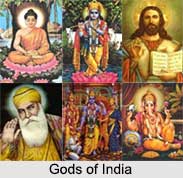 Gods of India form a superhuman and mysterious race of mighty humanoid beings that were prayed to by the ancient Aryan and Vedic tribes of the Mid-East from around 3000 BC till modern times. They were recognized mainly in Hinduism. It is believed that God pervades in everything and everywhere, He is the colossal being and stays in the gigantic things as well as in the smallest particle of the world. Hinduism defines God as the being who is visible and at the same time invisible, He has a form and He is formless as well.
Gods of India form a superhuman and mysterious race of mighty humanoid beings that were prayed to by the ancient Aryan and Vedic tribes of the Mid-East from around 3000 BC till modern times. They were recognized mainly in Hinduism. It is believed that God pervades in everything and everywhere, He is the colossal being and stays in the gigantic things as well as in the smallest particle of the world. Hinduism defines God as the being who is visible and at the same time invisible, He has a form and He is formless as well.
Hindu Gods of India
The Hindu Gods are the eternal deities appearing to be sovereign and different, but in reality are aspects of the same Brahman, the supreme God. Indian Gods are the Hindu deities in a number of incarnations. Some of them are as follows:
•Lord Brahma: He is the God of Creation, an important family deity among the Hindus. Seated on a lotus, Lord Brahma"s "vahana" is the swan.
•Lord Vishnu: He is the God of maintenance, protection and sustenance among the Gods of India. Vishnu is seen resting on the ocean on his bed of Adisesha Naga. He has ten avatars or incarnations.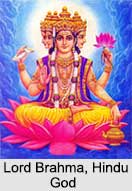
•Lord Shiva: Lord Shiva is the God of destruction and is highly revered among the Gods of India. He is greatly worshipped in the form of "linga" or phallus that is built on a pedestal.
•Lord Ganesha: Lord Ganesha is one of the prime Gods of India who is worshipped to remove all hindrances in the way. He is seen in the form of an elephant head in a human body, with four arms and a huge belly.
•Lord Jagannath: This God has the name given to describe a deity form of Krishna. He is considered merciful and the oldest and renowned Jagannath deity at Puri in Odisha. The famous Ratha Yatra or car festival is organized every year to mark Krishna`s home coming in Mathura.
•Lord Hanuman: He is also known as Anjaneya and is among the most important Gods and Goddesses in the Indian epic Ramayana. He assisted Rama in recovering Sita from the captivity of Ravana and was blessed with enormous energy and power by the Gods.
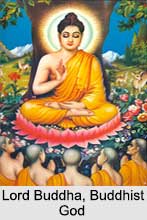
•Lord Indra: Another most important God of India is Indra who is known as the king of the Gods and the ruler of the heavens. He is a great warrior and is regarded as the God of rain and thunder. He is bedecked with conch, hook, rainbow, noose and Vajra.
•Lord Agni: Lord Agni is the acceptor of sacrifice and the messenger of Gods. Agni was the God of destruction both feared and revered by the worshippers. He is one of the most important of the Vedic Gods.
•Lord Vayu: Lord Vayu is the God or personification of air and is one of the Vedic Gods that Hindus worship every day. He is also said to be the King of Gandharva, the spirit of mountains who use to dwell.
•Lord Varuna: Varuna is considered as the God of the rain, sky, and of the ocean. He is also the creator of Law and of the underworld. Lord Varuna rides on Makara, his mount, or a type of holy sea-creature.
•Lord Kartikeya: The origin of Lord Kartikeya, the symbol of masculine might, has link with the desperation of Gods for the birth of the much-awaited son of Shiva, who could obliterate the ghastly demon, Taraka.
Buddhist Gods of India
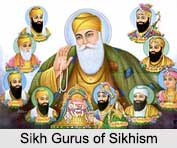 Buddhists believe that there are four main Buddhist Gods who are in charge of supervising the four directions of the world. They are known as "Satarawaram Gods" and protect virtuous Buddhists from the evils of some devilish people. They are Dularatha, Virulha, Virupakka and Vaishravana. Gautama Buddha was a sage who is worshipped as the main God in Buddhism, since this religion was founded along the guidelines of his teachings.
Buddhists believe that there are four main Buddhist Gods who are in charge of supervising the four directions of the world. They are known as "Satarawaram Gods" and protect virtuous Buddhists from the evils of some devilish people. They are Dularatha, Virulha, Virupakka and Vaishravana. Gautama Buddha was a sage who is worshipped as the main God in Buddhism, since this religion was founded along the guidelines of his teachings.
Jain Gods of India
Jains believe in the existence of certain heavenly beings known as "Devas" who are liable to all kinds of sufferings and should meet their end, namely death. As per Jain beliefs, such beings are not the creators of the earth. However, Jainism asserts the presence of Gods and Goddesses called "Sasanadevatas" and "Sasanadevis". Jain Tirthankaras are known to worship these heavenly beings. The four kinds of these Gods are the "Bhavanpatis" or Gods residing in abodes, "Vyantaras" or intermediary Gods, "Jyotiskas" or luminaries and "Vaimanikas" or astral Gods.
Sikh Gods of India
Sikhism states that there is only one single God which is the principle tenet of this religion. Sikhs believe in the philosophy of "Ik Onkar" or one God. However, it is a common opinion of Sikh Gurus that God is present everywhere and in all human beings. Sikhism feels that though God is present, he is perceivable only by people who are willing to dedicate their energy, time and devotion to Him. God has been described in several ways by the Sikh Gurus in their sacred book called "Guru Granth Sahib".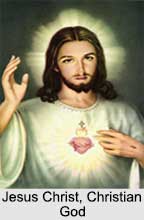
Islamic Gods of India
Islam has asserted about the existence of only one God and believes in monotheism. "Allah" or God is worshipped as the ultimate powerful creator and sustainer of the universe. Muslims feel that "Allah" is omnipotent, unique and merciful.
Zoroastrian Gods of India
Zoroastrians or the "Parsis" are of the view that Gods in their religion represent both monotheism and dualism. Fire is respected and worshipped by Parsis in different Parsi temples.
Christian Gods of India
Christianity has declared the presence of God who is the eternal being that created the universe. Lord Jesus Christ is worshipped and respected by all Christians as the all-merciful Lord, who had embraced his crucifixion to save mankind. He is known as the great Saviour.
Thus, the Gods of India from the ancient period form an integral part of the religious life of the Hindus, Muslims, Sikhs, Christians and other communities.









